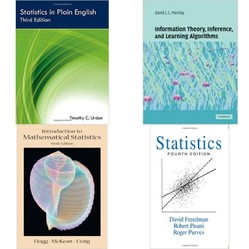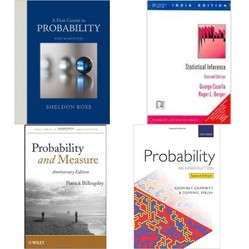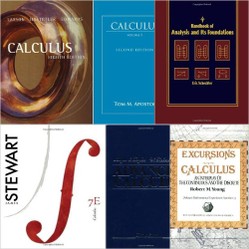Statistics is a subject that many students find challenging. I have a master's in Statistics from Yale University, and have worked as a statistical consultant, and I still find it hard. I found it tough as a student, even though I had a strong mathematical background.
The good news is that there are wonderful books out there that can help students of statistics at all levels.
This page aims to connect students and teachers with the textbooks best suited for people of varying ability levels and different learning styles. I begin reviewing two intro books that do not require much math background. The second section then presents the more "mathy" books for people who want to learn statistics in depth. Lastly, I present two supplemental books that are in closely-related subjects, which I think can greatly enhance people's understanding of the subject.
















 The Shaming of Femininity and Elevation of Masculinityon 07/13/2017
The Shaming of Femininity and Elevation of Masculinityon 07/13/2017
 What is Genderqueer or Non-Binary Gender?on 10/16/2015
What is Genderqueer or Non-Binary Gender?on 10/16/2015
 Resources for Learning Spanish Free Onlineon 04/13/2016
Resources for Learning Spanish Free Onlineon 04/13/2016
 Ways Native Plants Can Help Control Invasive Plantson 05/26/2016
Ways Native Plants Can Help Control Invasive Plantson 05/26/2016



Questions? Comments? Feedback?